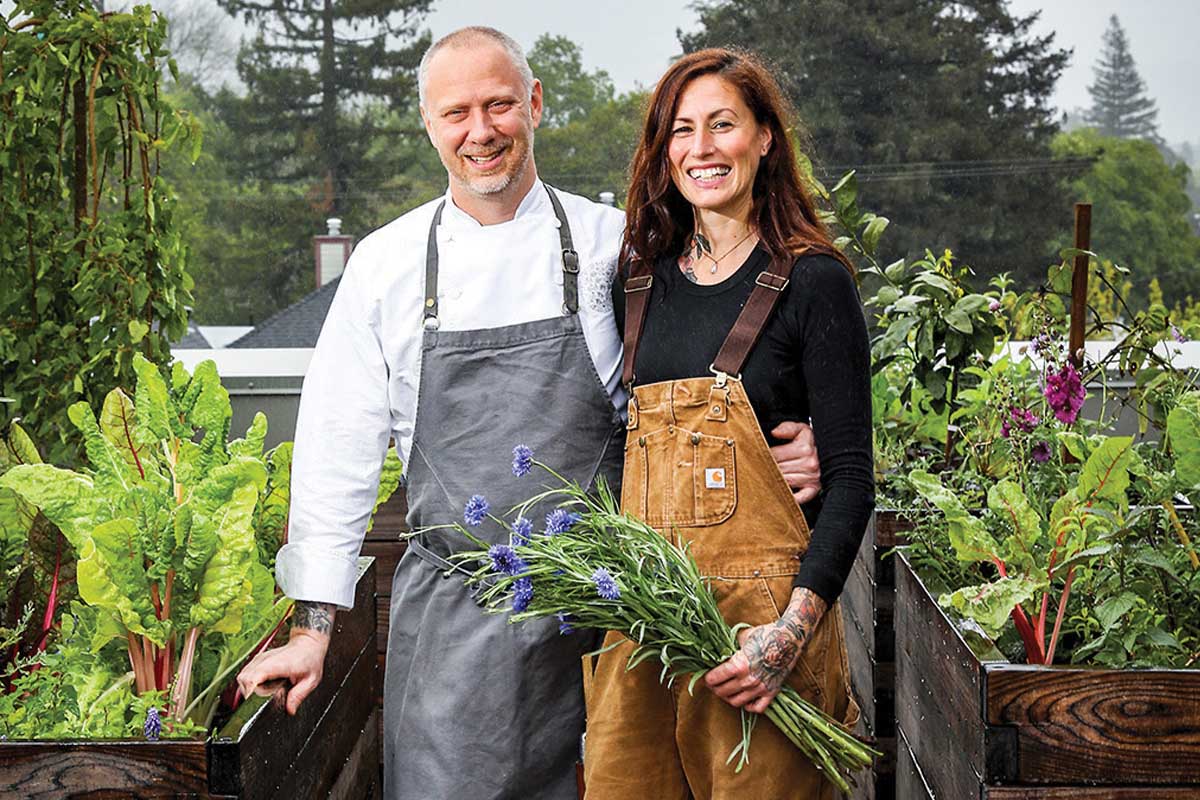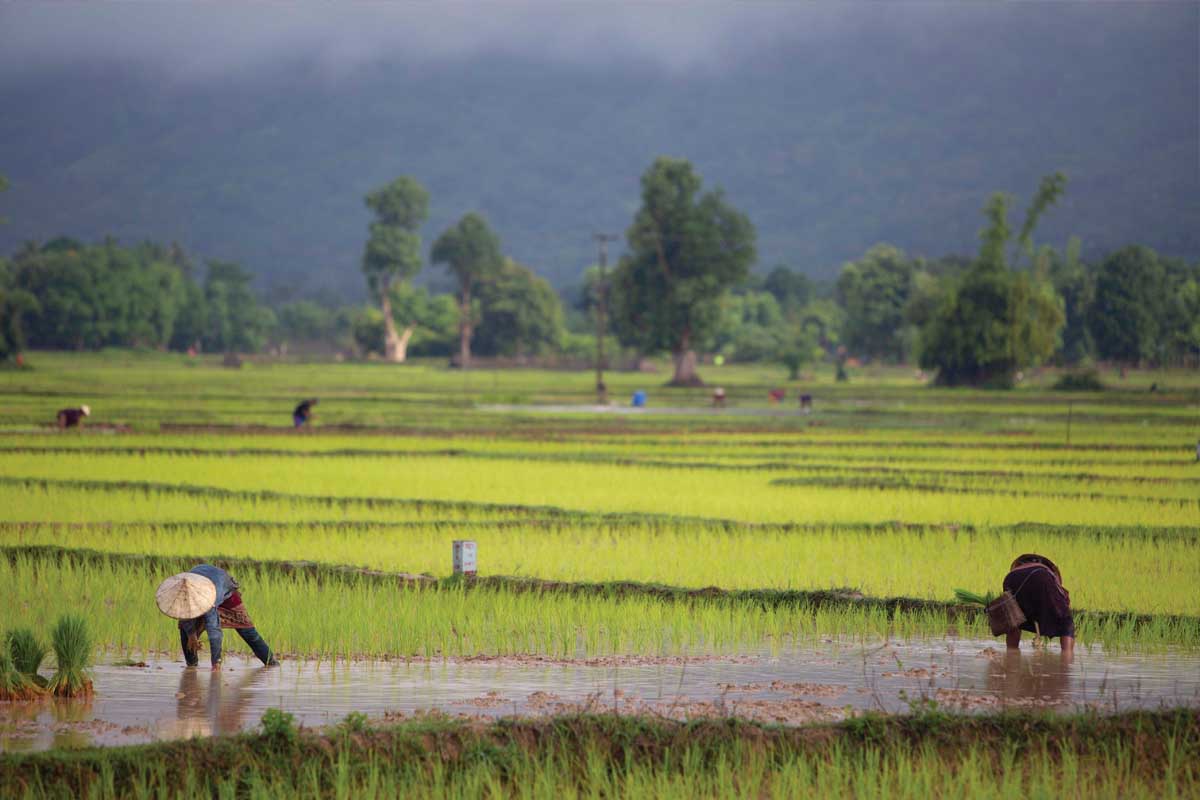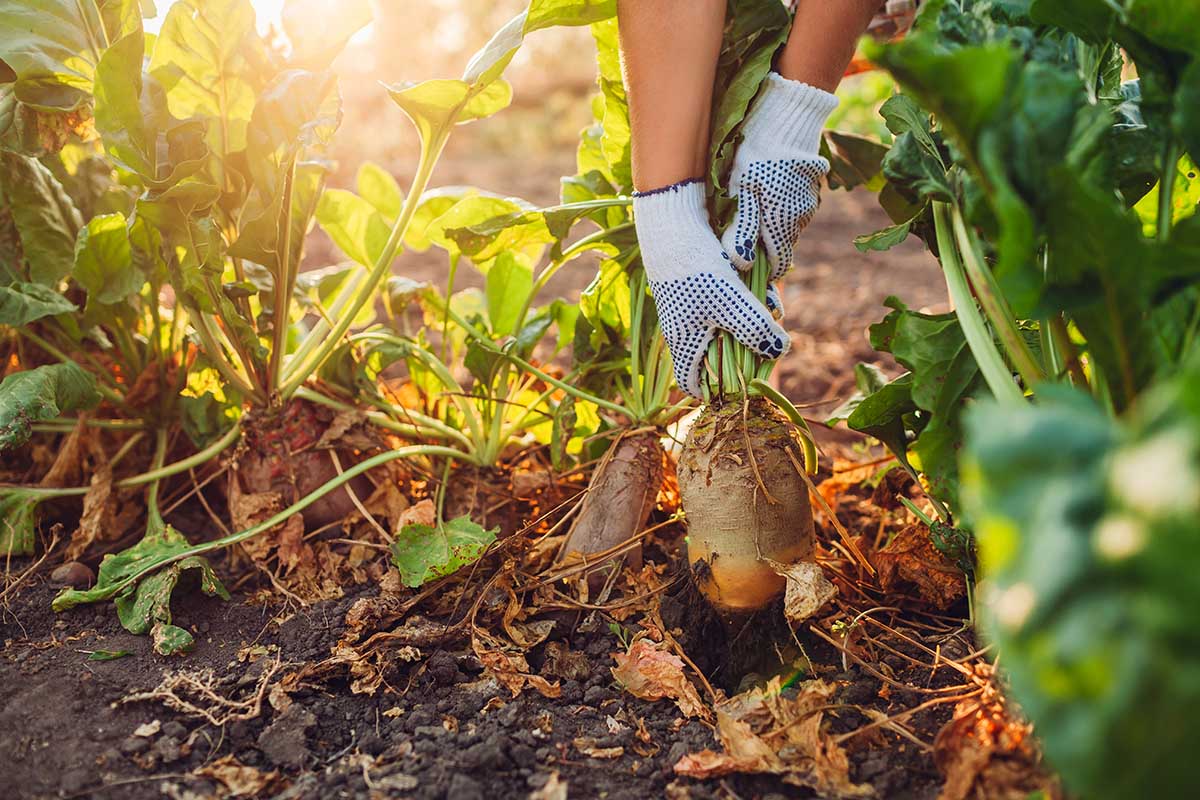Advertisement
A Thread Runs Through It
Community is at the center of SingleThread Farms
Fact-Checked
This article has been written and fact-checked by experts in the field.

Cozied in the Dry Creek Valley of Sonoma County, California, SingleThread Farm, Restaurant, and Inn is a testament to the efforts of husband-and-wife team Kyle and Katina Connaughton. Comprised of a 24-acre farm, a three-Michelin-starred restaurant, and a five-guest-room inn, it is driven by a communal understanding of hands-on thoughtfulness and respect for the Earth.
“We have several missions. They’re all happening at the same time and they’re all happening in balance with each other,” explains Kyle, co-owner and head chef at SingleThread Restaurant.
Advertisement
A shared beginning
The Connaughtons have always been invested in a true partnership. “We really had this vision together,” says Kyle. “We stopped in this little town after we got married and … had a vision that it would be there that we would be farming and cooking.”
Over time that vision evolved for Kyle and Katina and became an ode to the bountiful agriculture surrounding them with each season. “[We are] using the restaurant to tell the story of what’s happening on our farm.”
Every piece of SingleThread plays an important role in the story that the Connaughtons want to express. “This is today, here on our farm in Sonoma County, and what’s in season,” says Kyle.
Advertisement
Practical practices
The farm was just the beginning of SingleThread. “Our original farm was five acres,” explains Kyle. Katina, co-owner and head farmer, forged it out of fallowed land while the restaurant was under construction . Guided by nature, everything on the farm is grown using organic and regenerative practices. “It’s all done by hand,” says Kyle.
“We’re completely organic,” he continues. A no-till farm, SingleThread uses full regenerative practices and no heavy machinery. “We run the farm as a permaculture center,” explains Kyle. “From an agricultural perspective, [our mission] is to support and promote regenerative agriculture.”
Advertisement
Days full
SingleThread is constantly bustling with activity. Katina starts her day on the farm at 6 am. There are typically eight farmers working with her at any given time, depending on the season, and the first task is the daily harvest, which happens between 6 and 10 am.
By 11 am, the harvest is brought into the restaurant so the culinary team can start their daily prep work. Once the harvest is handed over to the restaurant, Katina begins work on the floral arrangements for the dining room. “She heads back out to the farm after the heat of the midday and she’s usually out there until the sun goes down,” explains Kyle. In all, a typical 12- to 14-hour day.
Beyond the harvest of the farm, the culinary team at SingleThread Restaurant—which currently includes 42 staff members—is hard at work.
With someone on-site 20 hours of every day, they work meticulously to serve a multi-course breakfast for guests of their five-room inn, and continue the day working toward their highly celebrated 10-course dinner service.
Because all of the produce from the farm is supplied to the restaurant, this allows for a unique perspective when guests come to SingleThread; the Connaughtons are able to introduce a full-circle experience. “It’s about exposing our guests to the importance of agricultural practices and giving them an appreciation for [them],” Kyle explains.
Advertisement
Nurturing along the way
Transparency is key at SingleThread, and guiding their staff as they learn and improve upon their craft is of paramount importance to the Connaughtons. “We’re training the next generation of thoughtful leaders for our industry,” explains Kyle, and they take this responsibility to heart.
Not only are Kyle and Katina working to prepare them for the hard work that the farm, restaurant, and inn demand, but, also, for what could be coming in the future. They educate their staff to be prepared in their careers to make sustainable decisions for the environment, their community, and the Earth based on their unique skillsets.
Advertisement
Weaving in community
In addition to SingleThread, the Connaughtons have another passion project in the works. Little Saint, a plant-based restaurant, located within the small town of Healdsburg, is focused on a partnership between good friends, good food, and good fun. “[Our friends] Laurie and Jeff Ubben came to us with the idea of Little Saint,” explains Kyle.
Little Saint encompasses a number of concepts, including a restaurant and bar, coffee bar, café, provisions market, and lounge. Patrons can visit for their coffee fix, grab a bite from their plant-based menu, or settle in for some live music in their upstairs event space.
“We were really excited about it! We wanted to do something casual, and we wanted to do something more plant-based because of the amount of agricultural production that we’re doing,” says Kyle. “It’s really complementary for what we’ve been doing at SingleThread.”
Advertisement
A natural progression
For the Connaughtons, growth meant increasing production from farm to table. “When our farm grew from five acres to 24 acres, that obviously grew our agricultural production, so [Little Saint] really became another outlet for our produce,” says Kyle. Additionally, Kyle and Katina have another five-acre farm dedicated solely to Little Saint, called the Little Saint Farm.
Little Saint Farm uses the same organic and regenerative practices as SingleThread Farm but focuses on producing more accessible produce like salad greens, carrots, broccoli, and so on.
Advertisement
A thriving community
Becoming a meeting place for the neighborhood is both a privilege and a responsibility. “It’s a real community space,” explains Kyle. “[Little Saint] is there to serve both the needs of the community and of the guest … to balance both of those things. It’s people’s morning coffee. It’s their lunch. It’s their grab-and-go. It’s their wine shop. It’s a lot of different things to a lot of different people.”
Perhaps the beauty of the Connaughtons’ emphasis on sustainability and the connections that community brings, is that it leads to meaningful experiences, focusing on the now. “We want to give guests a place to relax and decompress and enjoy something,” explains Kyle, “and really tell the story of today.”
How to find a CSA near me
Put your Google search to rest with this list of resources for finding a community supported agriculture (CSA) initiative in your community.
- LocalHarvest is a website connecting people who want fresh food with the farmers who grow it. Find CSAs, farms, markets, and events through their search tool.
- USDA CSA Directory lists farms that offer regular deliveries of locally grown products during harvest season. Search by city for the best CSAs near you.
- GrownBy is an app that joins shoppers with farmers. Have local and fresh farm products delivered to you, even in urban areas.





